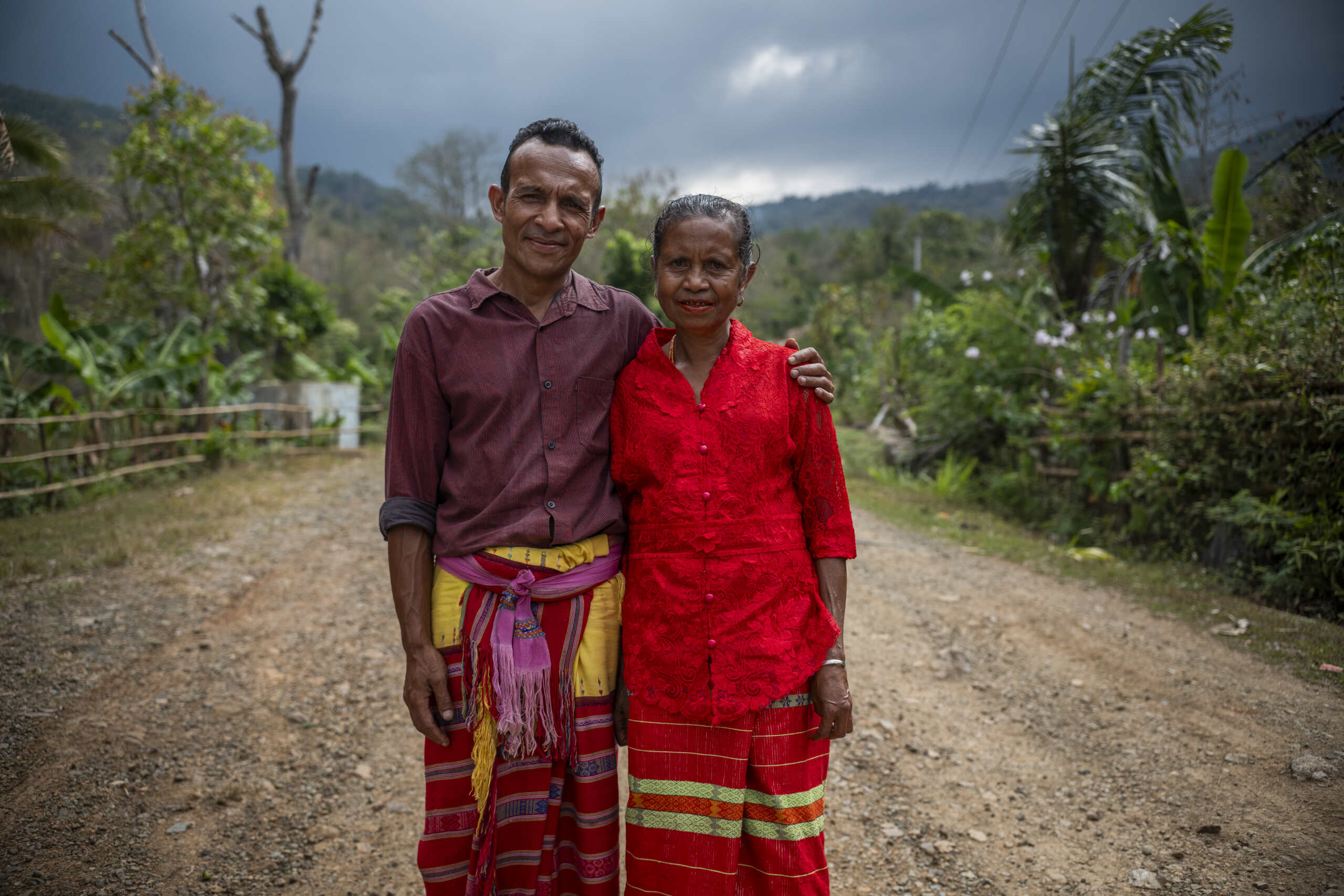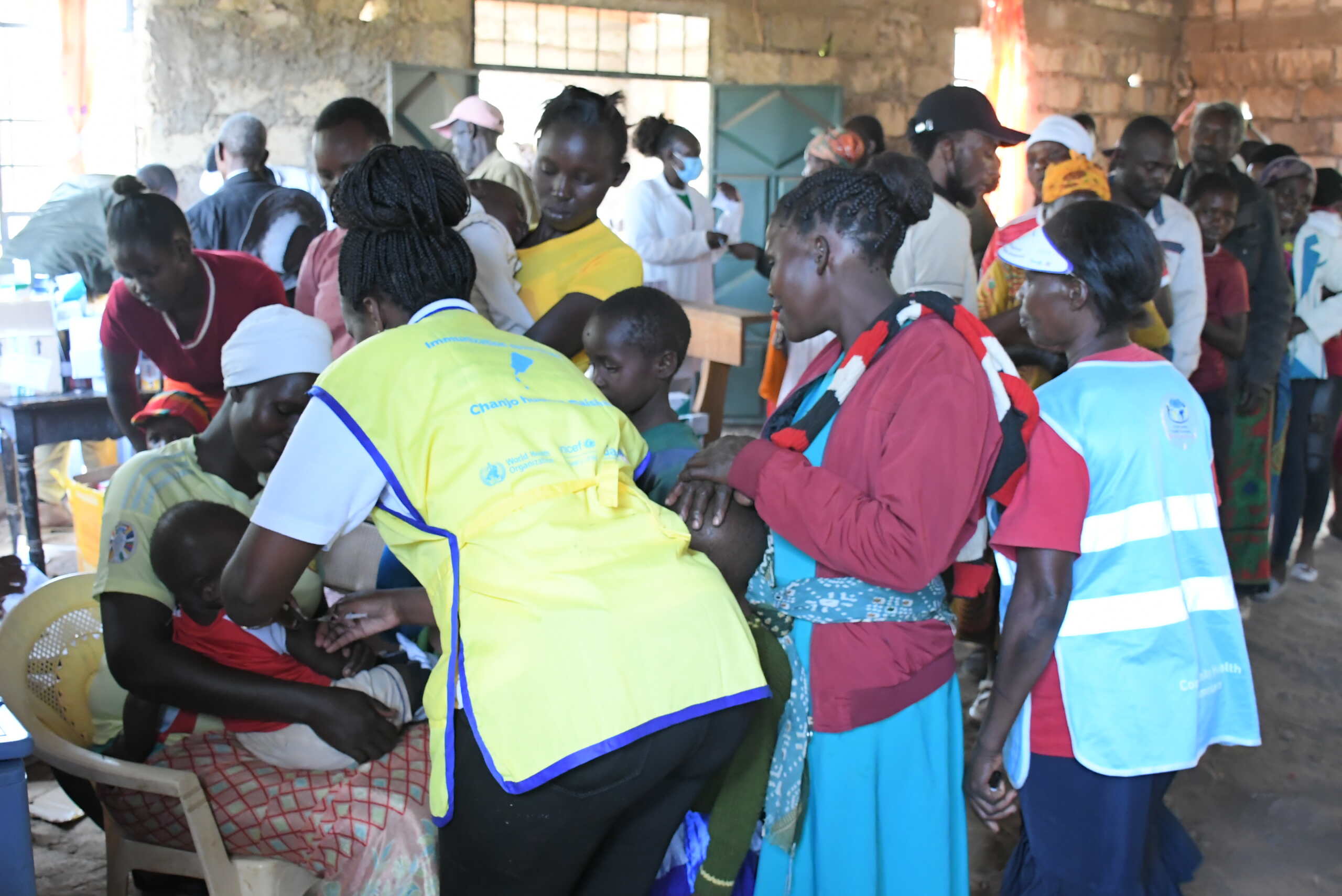Partnering with Disabled People’s Organisations to achieve an inclusive world
Pacific, Stories | June 25, 2024
Kathryn James, Disability Inclusion Technical Advisor, discussed CBM’s partnerships with Disabled People’s Organisations to achieve an inclusive world.
“Nothing about us, without us” is the rallying cry of the disability movement. It means that for any decision, policy or activity affecting them, people with disabilities must be fully included and involved.
This recognises that for too long, people with disabilities have been excluded or ignored, and left out of the decisions that impact their lives. Yet people with disabilities are the experts on their own experiences. They have the right to participate in their communities in the same way as all other people.
CBM Australia supports the principle of “nothing about us, without us”.
To help achieve this, we seek to cooperate with people with disabilities in all of our advisory work overseas. But in practice, what does this kind of partnering actually look like?
Working with People with Disabilities through Disabled People’s Organisations
One key way CBM engages with people with disabilities is by working closely with Disabled People’s Organisations (DPOs).
DPOs are groups run and led by and for people with disabilities. They are often small organisations, run largely by volunteers and with limited sources of funding. They can take varied roles:
- DPOs work to represent and provide a voice for people with disabilities.
- They often advocate to governments for public awareness and change on key issues affecting people with disabilities.
- They may also provide services for their members, like advice on accessing support payments or aids and devices like wheelchairs or crutches.
There are many advantages to working with DPOs:
- Partnering with local DPOs is a great way to engage with communities. A DPO will usually have many connections with local people with disabilities, and can help projects to reach those who are isolated or feel reluctant to get involved.
- DPOs can provide advice on the needs and priorities of people with disabilities. For development programs, such as those focused on livelihoods, water and sanitation or health, it’s important to involve DPOs in the early stages, including initial surveys, workshops and project planning. This means that the perspectives of people with disabilities are included from the beginning and helps to ensure that they’re not left behind.
- As a project is implemented, ongoing partnership with DPOs means that the needs of people with disabilities are raised and considered throughout the project.
An example of how it works: CBM partners with DPOs in Papua New Guinea
Earlier this year, I was involved in a gender and disability analysis for a World Vision project in remote Western Province of Papua New Guinea.
The project has a focus on water, sanitation and hygiene, and is being supported through the Australian Aid funded Water for Women Fund.
I worked alongside Kevin Akike from the national PNG DPO, Assembly of Disabled Persons, to meet with local people with disabilities and find out some of the key issues they were facing. We heard from people with mobility impairments and elderly people who were forced to bathe in dirty water as they could not reach tanks to access clean water; and those who had to go to the toilet in the open and feared attack or being bitten by snakes.
With advice from the local DPO and CBM, the project is now working to address these issues. This means that when they build or repair toilets and water facilities, they are committed to ensuring these are accessible for people with disabilities.
We also worked with members from the newly-formed Western Province DPO. They helped to locate people with disabilities in the communities, and supported them to participate in interviews and feel comfortable engaging with outsiders.
Being involved in the analysis process helped the DPO members to improve their own networks within communities. It also built their connections with the World Vision staff, who they will keep working with throughout the project. Having DPO members as active partners within this kind of project also helps to change negative attitudes that communities might hold about the skills and capabilities of people with disabilities.
Building a partnership with a DPO can take time and commitment. But when done properly, it means that the DPO can better meet its goals and priorities, while ensuring that development projects meet the needs of all people with disabilities.
Photo: Kathryn from CBM Australia (red shirt) and Kevin from a national DPO (left) meet with local DPO members in PNG, to learn about their experiences and access to water and sanitation facilities.
https://www.cbm.org.au/stories/disabled-peoples-organisations
Related Stories

How CBM is making a difference in Indonesia
For more than 45 years, CBM Global has been working alongside communities in Indonesia to ensure people with disabilities...

Coordinating inclusive health outreach in Meru County
For many households in Meru’s rural and remote areas, basic health services are physically...

Share your advocacy preferences with us
Thank you for helping us to advocate for the one billion people with disability globally. CBM Australia advocate across...
